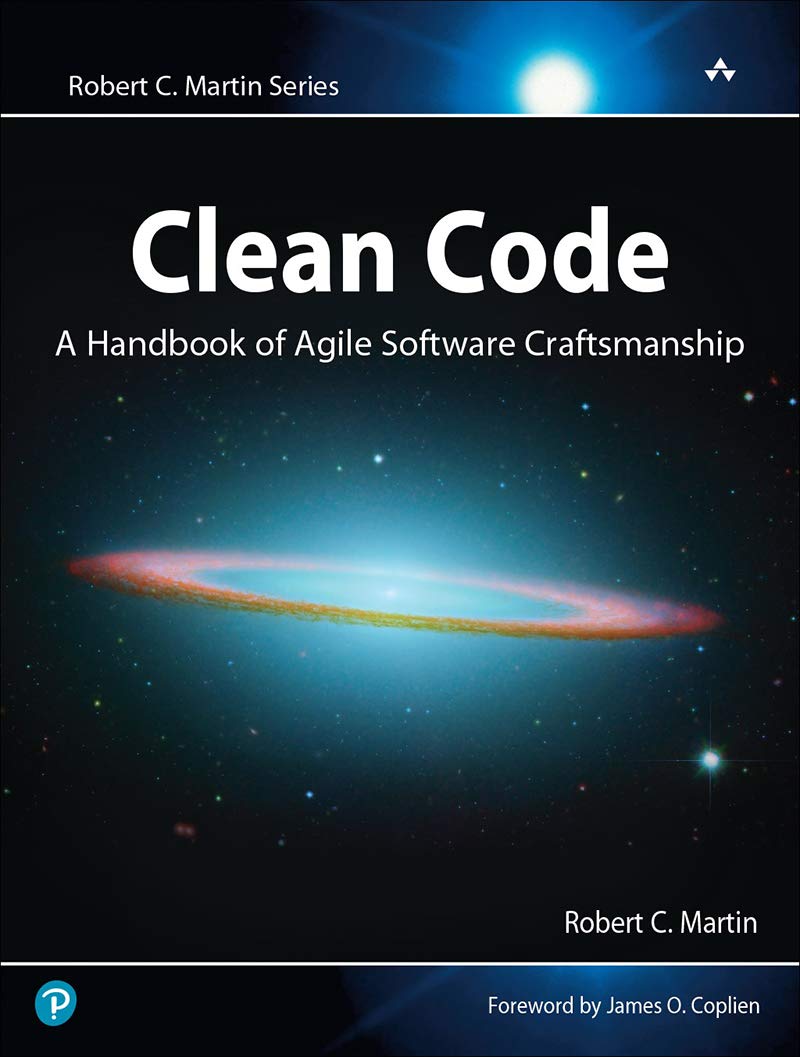2019 Work Reads
A Slew of Short Book Reviews
My professional reads from last year, rated and reviewed.

Overview
I like to read. I read a lot about a lot of things, but I would say that I devote maybe 40% of my reading time to things that I'd consider “professionally oriented”. These are books, articles, blog posts, white papers, etc. that I probably wouldn't read if I didn't have a job. They aren't all directly related to my job, but they all make me better in some way.
So here's a list of professional books I read in 2019 (roughly in chronological order) along with a rating out of five possible stars and the two second summary of why you should or shouldn't read them. Spoiler — they weren't all winners.
Clean Code
by Robert “Uncle Bob” Martin

Rating: 3/5
A slightly dated look at how code can be simple and maintainable. There are some good gems that can be extracted for programmers of any language or experience level. A bit long to read all the way through and considerably better in paper format as opposed to e-book because of the code blocks. Definitely worth a look if you're a day-to-day coder.
More dated than Clean Code with less timeless gems but a quick read was still useful to me. The main idea is to pick effective practices over ineffective ones. The rest of the book goes into ways to identify the difference and make choices.
Almost definitely the best book I've ever read and yet, it's hard to put the reasons into words without going on for far too long. GEB, as it's known by fans, looks at consciousness, the origins of meaning itself, and how math, music, art, communication, and technology can echo and discover the nature of intelligence. The book itself is almost unbearably deep with its prose and structure acting as analogy and example of the topics discussed within. Layer after layer can be peeled back in this truly one of a kind book. It's a monument to and triumph of human intelligence and its ability to transcend its meaningless parts to become a incomparably meaningful whole.
A collection of brilliant essays synthesizing ideas from across disciplines. Reaching from hardest of sciences to philosophic abstractions, Holt does an amazing job of diving deep on one thing at a time but keeping the big picture in mind. It's a book that can be picked up and put down over a long time because each essay stands alone as a complete piece. Still, I think the book is best enjoyed together because the sum of the whole is greater than that of the parts. Get ready to be absorbed and think deeply about metaphysics, epistemology, and ethics as you learn about modern scientific thought.
A seminal book on management and almost a right of passage into that world. Grove breaks down simple and concise principles of systems and how they can be used as a guide for organizations. This is also the origin of OKR's (Objectives and Key Results) that are so widely known and used in every industry today. The world would not be the one it is today had High Output Management never been published. A must read.
The only thing surprising about Drive is how little new information it offered. The truths about what motivate us are well known, time honored, ideas. Coming in about 50% too long as well, I gave it a second star simply because it could be useful for someone who has never heard these ideas before. But really, you'd have to have been living under a rock.
It's hard to say what I liked least about this book. The writing is condescending and the ideas offered are neither well thought out nor expanded upon. Repetitious to the extreme, this idea would work better as a 1500 word blog post left as an open question than a book that attempts to offer answers and fails. This is the only book I read as part of my work book club last year that I expensed to my learning budget because I couldn't bear to think that I had wasted the money on it. Let me save you the trouble and summarize every important idea from the book in one sentence. Designers should try to solve problems instead of automatically reaching for user interface patterns.
If you read Meditations expecting them to read like a book, you're going to have a bad time. They're highly repetitive and have no deliberate through-line. That said, when read as a private diary that was written over a lifetime, we see the strength of the ideology therein. We see a remarkable man who struggled with his desire to live a stoic life and understand his place in the universe. These meditations are an amazing coffee or breakfast companion to be read over a long time — pick it up, read a bit, and focus your mind for the day. We also get a delicious dose of irony reading about how Marcus Aurelius knows that people will eventually forget about him, when his work has so timelessly lasted through the ages.
An outstanding look at the 10,000 hour rule to mastery, where it stands up, and how it more often falls down in our modern world. Range offers encouragement for the now ubiquitous feeling of being behind our peers in our career paths, advice on how to understand the world more deeply, and a guide for finding things we not only enjoy, but will excel at. An intelligent and thought provoking read that can't help but leave you better than when you started.
A solid course on how to go from an individual contributor to a manager. The ideas presented in From Bud to Boss aren't earth shattering by any means and there are plenty of other places you can hear them. Most of the core value that this book brings to the table is that it takes all these common ideas and puts them together in a very specific lens for this specific situation. Definitely recommended in general, but an ideal read for someone who already has or is looking to make the switch.
This one might be getting a bit of an unfairly positive rating from me. It was an interesting, quick read, but probably too long. There's novelty in reading what amounts to a management book that isn't written as dry, "teach me something", text. At times, you'll be annoyed with how slow the characters are to catch on to things, and at other times, you'll feel like we're talking about tech in the 90's. At the end of the day though, if you want a decent story with some solid management principles in it, there's not much else out there. A good comparison might be The Five Dysfunctions of a Team, which I read this year and will put on my summary for next year.
If you want to check out a full list of the things I read, check out my Goodreads account. There's a lot there — professional or not. I'm working on a 52 books in 52 weeks challenge this year. Hopefully I'll be able to put out a post sooner than July of 2021 about it.